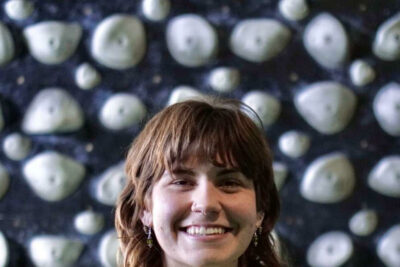Many people might believe that racism is a thing of the past. Some would state that racism was solved with the Civil Rights Movement, or that the election of a biracial president proves that the country has moved past the era of racism. This is simply not true.
While the United States as a whole has made definite progress, racism still exists, in both covert and overt forms. This past fall on the Goshen College campus, Brenda Salter McNeil was contracted to audit the campus climate. The audit “takes a critical look at an institution in regards to racial diversity and outlines ways to move forward; in effect, producing culturally competent individuals.”The audit seeks to answer the questions “Where are we, and where would we like to go?” In lieu of the upcoming results, a different sort of cultural audit was taken.
Sixteeen Goshen College students were asked a similar question. One of these students was Goshen native, Jeff Stoesz. Stoesz states that he has become increasingly aware of the state of race and racism since college. He sees the city of Goshen as divided into three groups: immigrants, poorer White working class people, and Goshen alumni and other middle class people. He states that the middle class tends to be more accepting of the increasing diversity, while the poorer Whites tend to be more conservative and harbor more bitterness towards the increasingly diverse population for the state of the economy.
Stoesz’s account of where the college is brings out that racism in Goshen is not blatant anymore, things have become less taboo and more covert. He tells the story of two of his non-white friends, who were stopped by a car of white men and questioned about their purpose in that neighborhood after leaving Stoesz ’s house late that night. No violence occurred, simply a questioning that had clear racial implications. The students were told that their current location was “not their place” and encouraged to move along.
Brett Bridges, a biracial student of African American and Hispanic descent recounts her experience shopping at Walmart last spring. Someone was exiting one aisle, she was going straight and their carts almost crashed. After each party situated themselves, the man said “you better watch yourself nigger.” Shocked, Brett did nothing.
Several Hispanic students report racism in Goshen as getting progressively better. “The community is becoming progressively more accepting, and for that, we are all grateful,” said one female student, who wished to remain unidentified.
Minda Clemens, an Indian female who was raised in Goshen, recounted one night when she was driving home from school after a night class and was stopped by a police officer for a missing taillight. While this stop should have been routine, the police officer had her get on the ground in the middle of County Road 17 while he searched her car without probable cause. It was winter.
One of the Black males, who wished to remain unidentified, spoke of being stopped and searched after a party even though he was in the middle of a group of friends. The police officer thought the student yelled “5-0”, a slang term for police, and decided to ask the student for his identification. The student had not been drinking or doing anything else wrong, and therefore was let go, but the experience stays with him. He stated that during the time of his questioning and conversation with the officer, about 30-40 white Goshen College students walked by, none of whom were stopped or questioned.
The Goshen College community has, however, done much for race relations on campus and off
The surge of international students has made Goshen College students aware and active when it comes to cultural differences. Core values that are integrated into classroom curriculum and cultural identity have helped many students to overcome instances of racism that they encounter on or off campus.
The city of Goshen as a whole has also progressed greatly. The occasional issues are not completely indicative of the state of the city of Goshen today. Goshen, after a Ku Klux Klan rally in 2001 responded with the institution of an annual Diversity Day program. Diversity Day seeks to celebrate difference and look for unity in spite of differences in ethnicity, race, culture, gender, language and religious beliefs. Goshen students are usually involved in the public event. This year, Diversity Day will take place on May 8 at the Elkhart County Fairgrounds.
The Goshen College community as a whole has helped to catalyze change.
Brenda Salter-McNeil’s cultural audit is due in approximately one month. The report on “where we are now and where we want to go” will help the college community greatly, but so will students’ honest reflection about where each person is as an individual.
